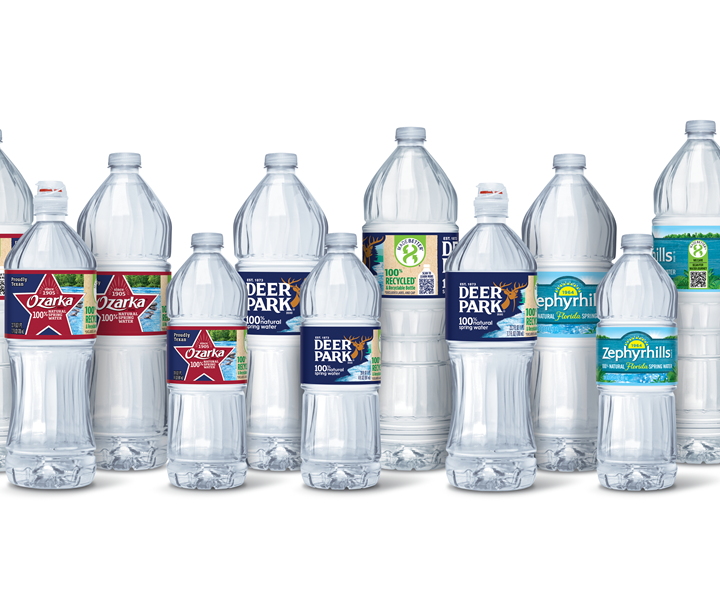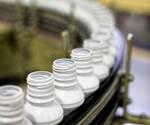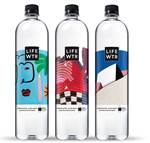Nestlé Waters Doubles rPET Use
The company adds three more brands to its 100% recycled plastic portfolio.

Nestlé Waters adds three more brands to 100% recycled plastic portfolio.
Nestlé Waters North America (NWNA) has set targeted goals of using 25% rPET across its U.S. domestic portfolio by 2021 and 50% rPET by 2025. The company is one step closer to achieving this with the announcement that three more of its regional spring water brands now offer bottles made with 100% recycled plastic. Ozarka Brand 100% Natural Spring Water, Deer Park Brand 100% Natural Spring Water and Zephyrhills Brand 100% Natural Spring Water packaging, will now be both 100% recyclable and made from 100% recycled plastic.
With the expansion of rPET to these brands, nearly 60% of all households in the U.S. will have access to one of Nestlé’s regionally distributed spring water brands in bottles made entirely with recycled plastic. The packaging conversion for these three brands means that NWNA has now doubled the amount of rPET used since 2019 across its U.S. domestic portfolio to 16.5%.
To help consumers identify the new rPET bottles, all three brands will include a new message on the labels of the 20oz, 700mL, 1L and 1.5L bottles, stating they are both 100% recyclable and now are also made from 100% recycled plastic.
Earlier this year, I talked with Chastity McLeod, Nestlé head of technical packaging, who told me that the company’s ability to use recycled content directly links to the capacity of the recycling facilities to transform the reclaimed materials.
“We’re hoping for a greater demand from the industry; and by us purchasing the recycled material, we can help regenerate the funds for the MRFs and recycling facilities to invest in their infrastructure to help continue the loop,” McLeod said.
NWNA’s ability to expand its use of recycled plastic partially relies on existing bottles being recycled when empty. Right now, less than 30% of PET bottles are recycled and many recovered beverage containers are being down-cycled and used in non-food contact applications versus being made back into beverage containers.
Recognizing these challenges in obtaining enough rPET to incorporate into more of our product packaging, NWNA will continue to work collectively with industry, NGOs, governments and consumers to address critical issues related to infrastructure, collection, policy, consumer education, and development of end-markets for recycled materials.
Related Content
-
How to Optimize Injection Molding of PHA and PHA/PLA Blends
Here are processing guidelines aimed at both getting the PHA resin into the process without degrading it, and reducing residence time at melt temperatures.
-
Compatibilizers Aid Recycling & Upcycling of Mixed Resins
Compatibilizers are proving their worth in boosting critical properties such as impact/stiffness balance of PCR and PIR blends of polyolefins and other plastics.
-
Avoid Four Common Traps In Granulation
Today, more than ever, granulation is an important step in the total production process. Our expert explains a few of the many common traps to avoid when thinking about granulators
















.png;maxWidth=970;quality=90)